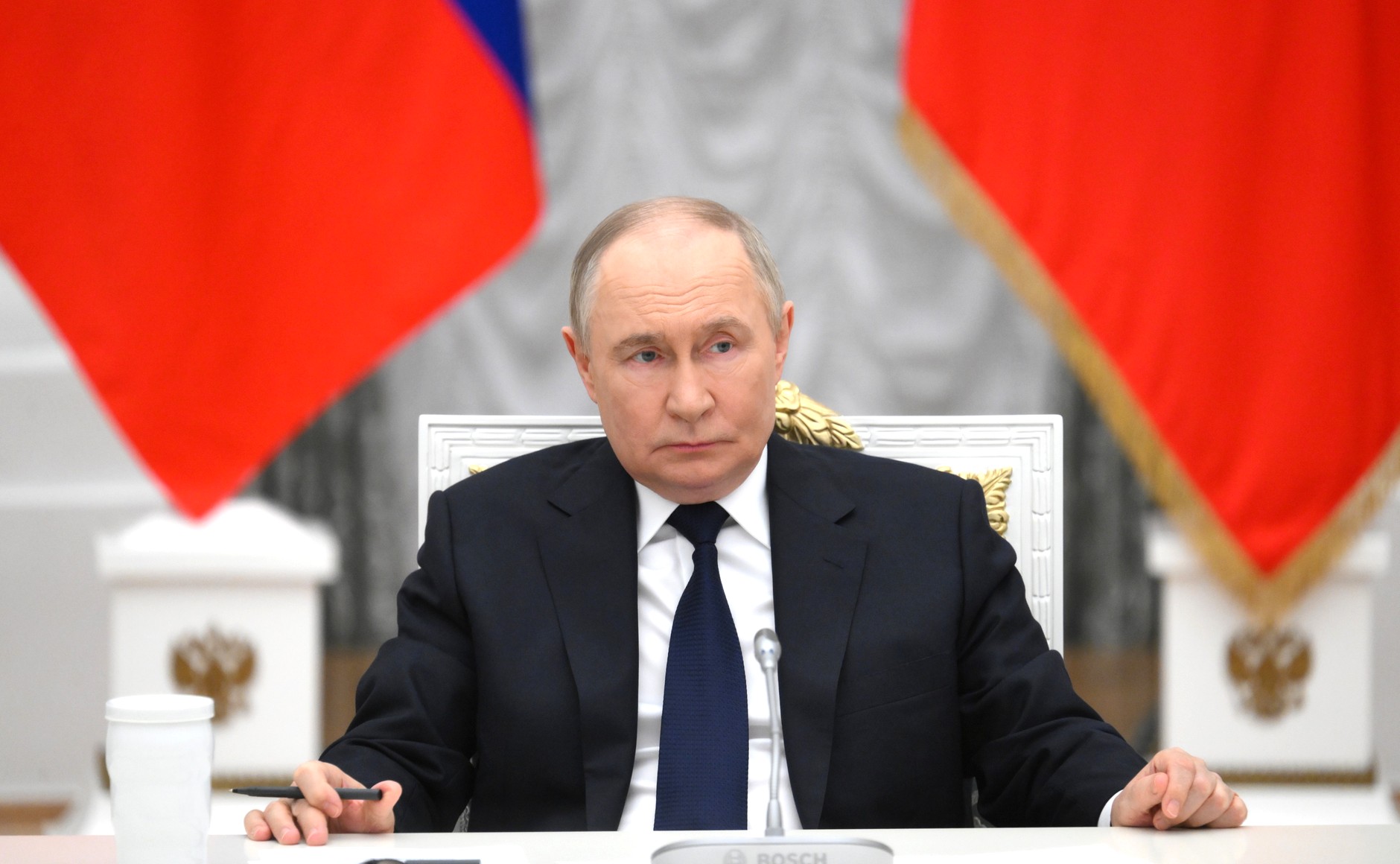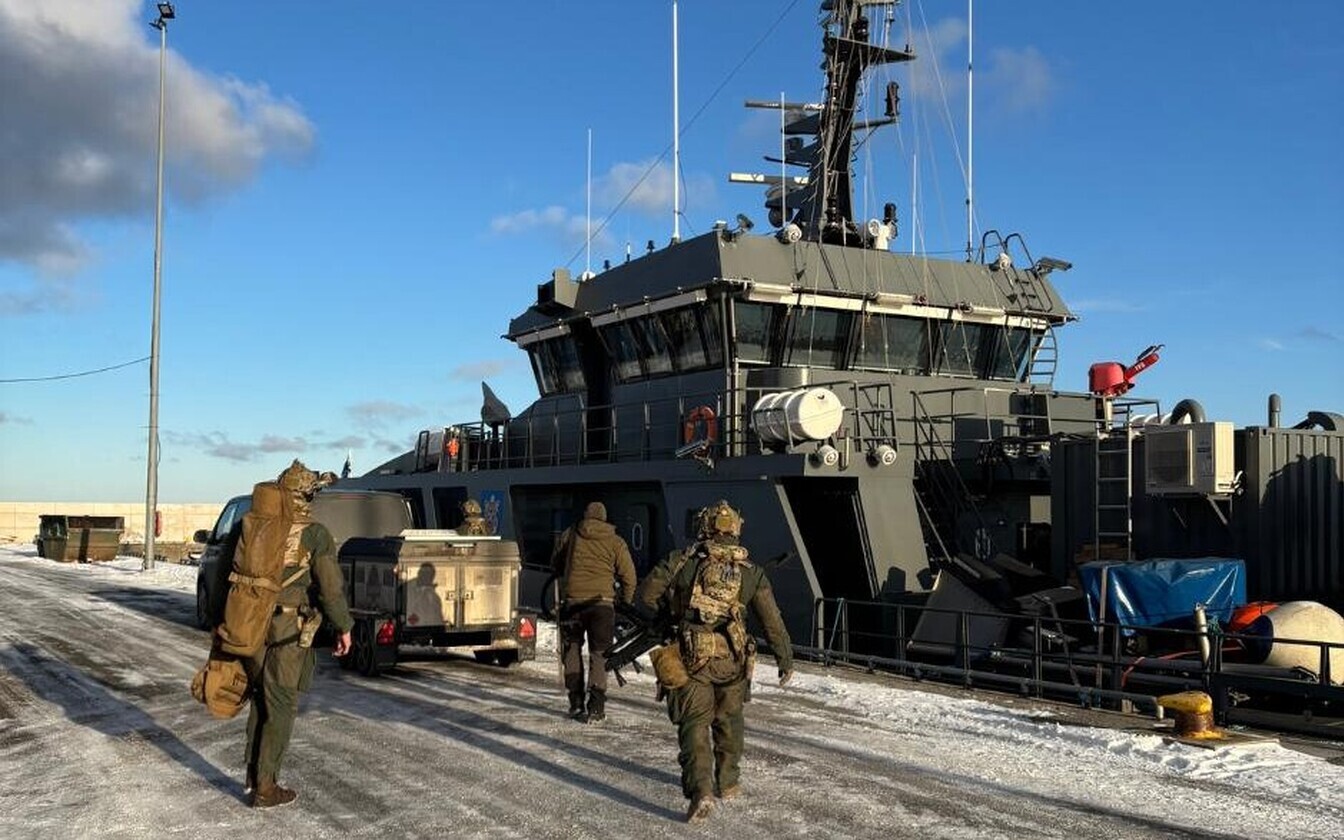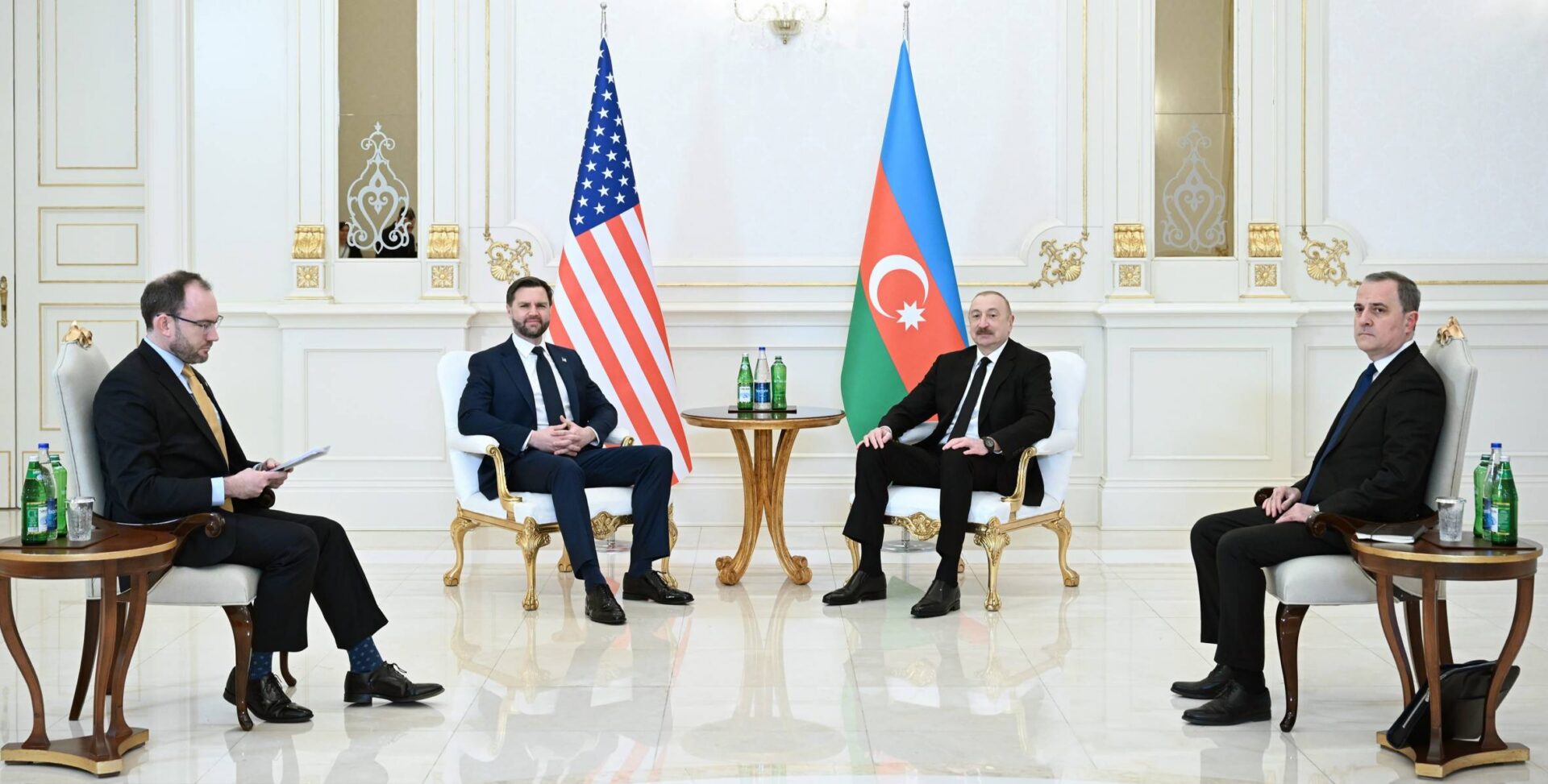
Putin Holds Firm to War Course, Conjuring Mirage Of Victory
Putin Holds Firm to War Course, Conjuring Mirage Of Victory
Executive Summary:
- Moscow’s war against Ukraine has seen no meaningful progress toward peace in the past month as hostilities have escalated with Russia preparing a list of conditions for a ceasefire that would be agreeable to Kyiv.
- Russian President Vladimir Putin seeks to capitalize on Western political divisions, interpreting weak European sanctions as a sign of diplomatic success while Kremlin media emphasizes Russia’s control of battlefield momentum.
- Russia’s militarized economy shows signs of strain due to rising inflation, stifled civilian sectors, and diminishing oil revenues as Moscow’s aggressive posturing risks economic instability.
The fever of diplomatic battles around Russia’s war against Ukraine in the first three weeks of May has broken, leaving few meaningful results. The intensity of trench warfare is unabated, while the scale of mutual drone strikes has increased, with Kyiv coming under several cruel attacks. Russian President Vladimir Putin appears to presume that he has withstood the pressure for an immediate cessation of hostilities without inviting the ire of U.S. President Donald Trump, who appeared to be satisfied with the long telephone conversation last Monday (Re: Russia, May 21). The threat of new U.S. sanctions has receded, and the threat of new European sanctions is perceived in the Kremlin as so insignificant that Kirill Dmitriyev, Putin’s aide and key negotiator, has ventured an opinion that the European Union spends too much time and effort on economic self-destruction (RIA Novosti, May 23). For the next round of bilateral talks with Ukraine, Moscow is preparing a list of conditions for a ceasefire and a memorandum outlining the terms of a peace deal. Neither document, however, is drafted in a manner that would be remotely agreeable to Kyiv (Nezavisimaya gazeta, May 20).
Putin’s conceit is evident in the upbeat tone of commentary on the outcome of the diplomatic sparring in Russian mainstream media, which is superficially deferential to Trump and only hints at how Russia has not abandoned its interests (Nezavisimaya gazeta, May 20; Kommersant, May 23). The noisy crowd of “patriotic” pundits is even more explicit in hailing Putin’s triumph and deriding Ukrainian President Volodymyr Zelenskyy’s failure to persuade Trump to put more pressure on Russia (TopWar.ru, May 22). Only a few experts dare to suggest that Trump’s desire to make a peace deal remains undiminished, and Moscow should therefore consider meaningful compromises to proceed with a new “reset” in relations with the United States (RIAC, May 22). Their arguments aim to link the tactical benefits of demonstrating flexibility with Russia’s strategic interest in ending the unwinnable war (Forbes.ru, May 23).
The Kremlin keeps pressing the point on controlling the initiative in combat operations and progressing toward the ultimate goal of subjugating Ukraine and breaking the trans-Atlantic solidarity and North Atlantic Treaty Organization (NATO) unity (Re: Russia, May 23). The immediate aim of relentless attacks is to expand the “security zone” in Ukraine’s Sumy oblast ordered by Putin to prevent any hostile incursions into Kursk oblast. In contrast, the proposition for annexing this Ukrainian region is eagerly entertained by Russian jingoist war commentators (TopWar.ru, May 24). This escalation of Russia’s aggression requires a shift from tactical gains to a large-scale summer offensive, for which reserves amounting to several divisions need to be built, while the costly system of attracting volunteers barely delivers the numbers sufficient for compensating the heavy losses (Novaya gazeta Europe, May 21; Media-Zona, May 23). The troops from North Korea, although lightly armed and inexperienced in drone warfare, played a significant role in the Kursk battles. The arrival of reinforcements is uncertain, however, as the trade-offs between Putin and North Korean leader Kim Jong Un are carefully monitored by the People’s Republic of China (The Insider, May 20).
One assumption underpinning Putin’s belief in the decisive victory is the insufficiency of European support for Ukraine’s war effort in the absence of new U.S. funding for military aid (Izvestiya, May 23). Every voice from far-right populists, particularly in Germany, is amplified by Russian propaganda as evidence of discontent with confrontation and sanctions against Russia among European societies (News.ru; Nezavisimaya gazeta, May 22). Trump’s threat to impose 50 percent tariffs on import from the European Union is interpreted not only as a driver of probable recession in key European economies, but also as an impediment for a collective decision in the G7 (Group of Seven) format on lowering the price ceiling on Russian oil export from $60 to $45 per barrel (Interfax, May 23; ProFinance.ru, May 24).
The contraction of revenues from the export of hydrocarbons exacerbates many other economic distortions caused by the massive allocation of state resources toward Russia’s military-industrial complex, which cannot serve as an engine for other sectors affected by over-taxation and under-investment (Re: Russia, May 22). The parameters of corrections in financial policy remain unclear as Putin mixes messages of boasting about economic growth with reassurances about a “soft landing” (Izvestiya, May 13). His instructions about reducing inflation remain unfeasible, and public expectations about the further rise of prices, particularly on staple foods such as potatoes, remain high, informing the retail sector better than the politically correct macroeconomic forecasts (The Moscow Times, May 19).
Distorted and doctored data obfuscate the reality of an asymmetric but deepening recession and confuse the debates in the government about lowering the key interest rate, which has been set at 21 percent since October 2024. This puts a significant squeeze on many civilian sectors, but makes a scant difference for the subsidized defense industry (Nezavisimaya gazeta, May 21). The resilience of the Russian economy to possible new EU measures in tightening the sanctions regime is eroding. Political concerns are translating into escalating tensions in the Baltic Sea, where Moscow is attempting to demonstrate its determination to deter collective actions against its “shadow fleet” by seizing (and quickly releasing) a Greek tanker in Estonian waters of the Gulf of Finland (Forbes.ru, May 20). Such military provocations only add to the nervousness within the government’s economic team, which is compelled to prioritize the needs of the war machine but cannot ignore the damage caused by Russia’s creeping militarization (Republic.ru, May 16).
Putin’s diplomatic success in sabotaging the peace deal and placating Trump’s irritation may mark a serious setback in extricating Russia from the trap of the unsustainable war of attrition. His vision of victory is focused on a vague plan for a summer offensive, which amounts in essence to yet another strategic gamble, yielding at best some more territorial gains but is certain to exacerbate the distortions in Russia’s economy and the degradation of its society. His bet on deepening trans-Atlantic disagreements may appear smart and sure, but is, in fact, counterproductive, generating a consolidation of political will in Europe that is necessary for stopping the immediate push and deterring future aggressiveness. The limits of Russia’s resilience are tested again and again, and the price for overcoming each new one increases as its financial resources deplete and human capital deteriorates.


